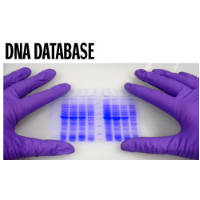One Company has Monopoly on Database of Cancer-Related DNA

The genetic revolution in medicine, in which scientists have identified thousands of human genes and mutations that cause numerous diseases, is in danger of being strangled by private corporations that patent human genes and then refuse to share their data with doctors unable to pay their price, according to activists who have brought a case to the Supreme Court. The case, Association for Molecular Pathology, et al. v. U.S. Patent and Trademark Office, will be argued today, although a decision is not expected for several months.
Opponents of gene patents point to studies that show how patents thwart research and harm patients, including a 2010 study by the Department of Health and Human Services finding that patent holders had forbidden health care providers from offering genetic tests for hearing loss, leukemia, Alzheimer's, Huntington's disease, Long QT syndrome and other disorders affected by patented genes. Surveys of geneticists conducted in 2001 and 2003 likewise found that just over half had been forced to limit their research because of gene patents.
The case before the High Court challenges patents owned by Myriad Genetics (2012 revenues: $496 million) on two genes known to cause breast cancer and ovarian cancer, known as BRCA1 and BRCA2. Myriad uses those patents to prevent anyone else from providing genetic tests to determine if a woman has these genes, and it charges $3,340 for the test.
All told, the U.S. Patent and Trademark Office has granted patents on at least 4,000 human genes, and patents now cover about 40% of the human genome.
Even if the Supreme Court strikes down Myriad's patents, however, critics point out that the company will still own the largest database of genetic mutations and what they mean—and Myriad stopped sharing the information in the database eight years ago. Dr. Robert L. Nussbaum, chief of the division of genomic medicine at the University of California, San Francisco, told The New York Times that “The Myriad approach is a big black box. It’s a ‘trust us, we know best’ approach.” And, Nussbaum stressed, “it is contrary to the public health.”
Many genetics researchers, led by Nussbaum and furious about the secrecy that is shrouding their field and harming public health, have started a project, Sharing Clinical Reports, which is gathering from cancer clinics and doctors all the testing data they've received from Myriad over the years. As the project collects the data, it hopes to recreate Myriad’s database, which is based on that same test data, and offer it to the public without restriction.
-Matt Bewig
To Learn More:
DNA Project Aims to Make Public a Company’s Data on Cancer Genes (by Gina Kolata, New York Times)
Free the Data! (Sharing Clinical Reports Project)
Doctors and Patients ask Supreme Court to Disallow Patents of Cancer-Related Genes (by Noel Brinkerhoff, AllGov)
- Top Stories
- Unusual News
- Where is the Money Going?
- Controversies
- U.S. and the World
- Appointments and Resignations
- Latest News
- Trump Renames National Football League National Trump League
- Trump to Stop Deportations If…
- Trump Denounces World Series
- What If China Invaded the United States?
- Donald Trump Has a Mental Health Problem and It Has a Name






Comments